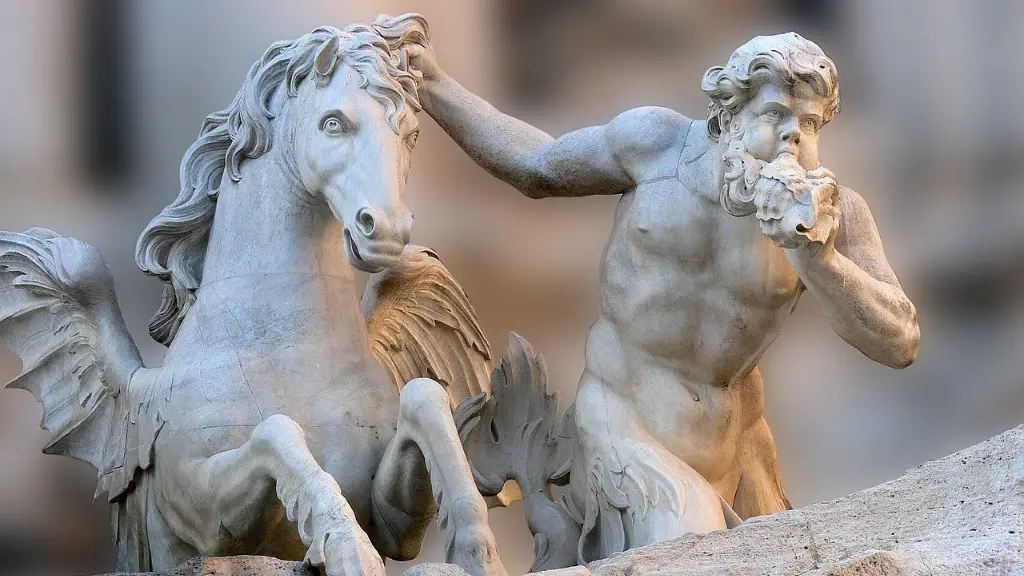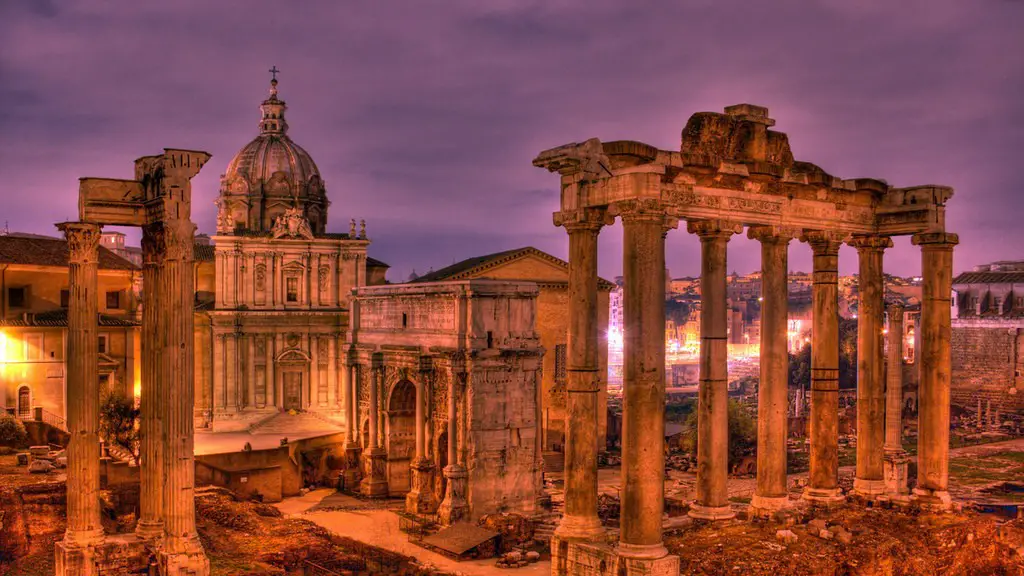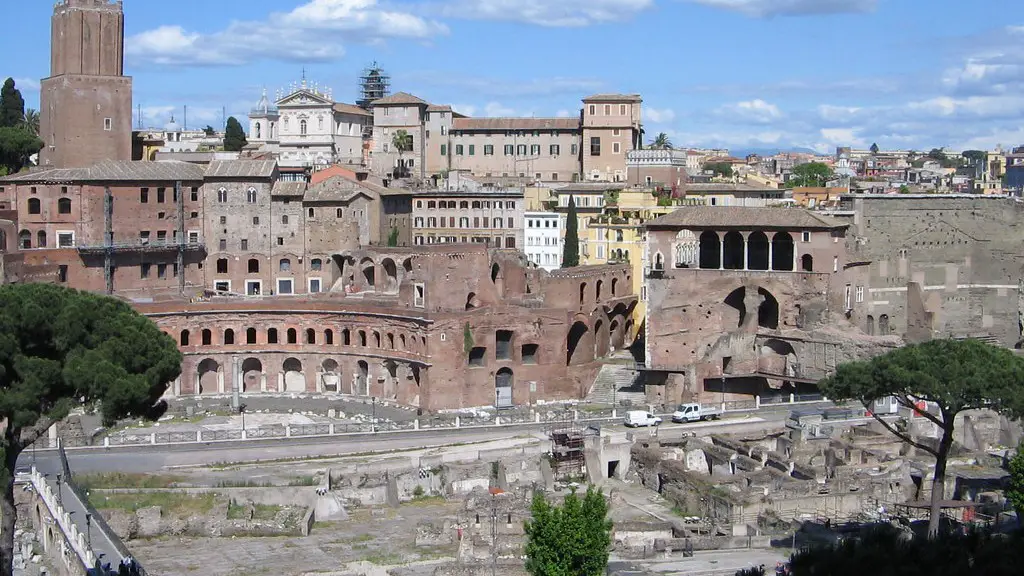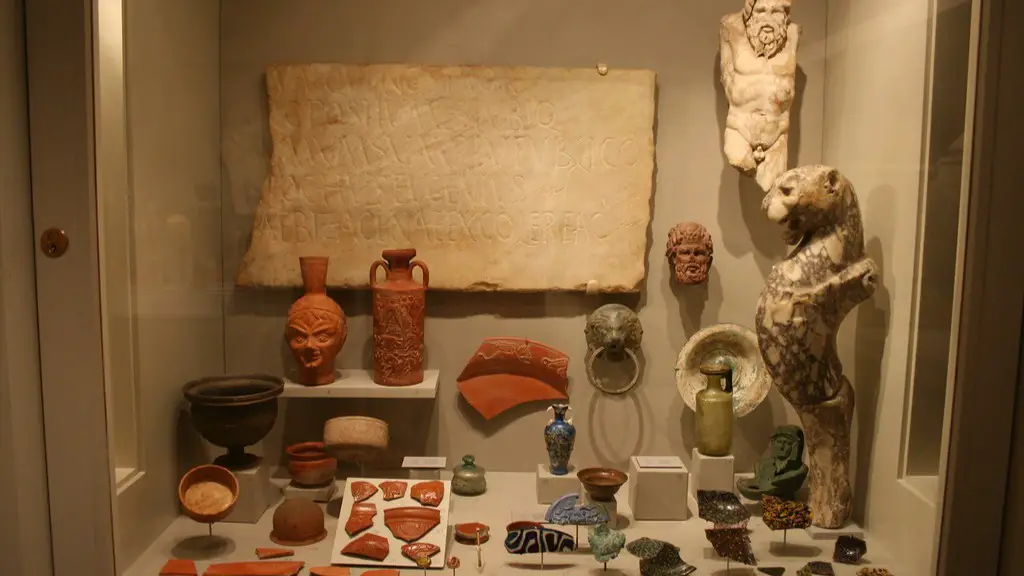In Ancient Rome, judges (called iudices) had a crucial role in making sure the people lived according to the laws of the state. They were prominent figures, highly respected and feared by the common citizens. The Roman justice system was seen as being impartial and thus, the iudices were expected to be fair and equity minded in their decisions. Although the iudices were an integral part of legal proceedings in Ancient Rome, their duties, rights and responsibilities varied depending on the court in which they presided.
The earliest iudices were a group of specially chosen jurors chosen by the senate. These senators were appointed to serve a term of four years, during which time they were required to hear cases and bring rulings. During this period, the iudices were given special privileges such as the right to hold office, to converse with the emperor, to be exempt from certain taxes, and to receive money from the state. Although these privileges were often abused, the iudices were still seen as integral to the Roman justice system.
In the late Roman Empire, the role of the iudices changed, as more emphasis was placed on the legal proceedings associated with civil disputes. In these cases, the iudices were usually appointed by the emperor or by a consul, and their authority extended to all cases involving civil or criminal disputes. The iudices were also responsible for supervising the other magistrates and could override their decisions if they felt they were unjust. In this way, the iudices served as both judges and jurors.
The Roman legal system was complex and relied heavily on oral testimony and circumstantial evidence. For example, if a plaintiff brought a case against a defendant, the jury had to understand both sides of the dispute and make a ruling based on the facts of the case. Due to the complexity of the Roman legal system, and the fact that iudices had to make decisions based on circumstantial evidence, they often made unpopular decisions. This unpopularity led to a decline in their power and authority towards the end of the Roman Empire.
The role of the iudices was further weakened during the decline of the Roman Empire. The decline of the iudices coincided with the rise of Christian culture and the decline of paganism. Christianity sought to bring a new sense of morality to Roman society, and this new morality required a different kind of justice. With the rise of Christianity, the iudices became less respected and their power declined.
Modern Implications of Ancient Iudices
The role of the iudices in Ancient Rome, and their decline in the waning years of the Roman Empire, have strong implications for modern Law. For example, the decline of the independent iudices, who were not appointed by any particular ruler, paved the way for a more centralized form of justice which heavily depended on royal rulings. This centralized form of justice, which is the basis of most modern legal systems, has allowed for the modern judicial system to expand and evolve into the complex system it is today.
Furthermore, the importance of oral testimony, and the use of circumstantial evidence in Roman trials can also be seen in modern court proceedings. In many cases, evidence may be circumstantial and it is up to the jury and the judge to decide if the evidence presented is sufficient to make a ruling. Additionally, oral testimony is still regarded as a critical part of modern legal systems and can be a deciding factor in court proceedings.
Legacy of the Iudices
Although the role of the iudices in Ancient Rome has largely been overlooked, their influence on modern legal systems cannot be understated. The iudices created a powerful legal system that was respected and feared by the citizens of the Roman Empire. This legal system set the precedent for modern legal systems and its importance cannot be overstated.
Additionally, the role of the iudices had a substantial impact on the ethical and moral landscape of Roman society. The iudices were held to a high standard and their decisions were based on facts and justice. This sense of justice and fairness set the foundation for modern legal systems and has shaped the way we view justice and fairness in the modern world.
Justice in Ancient Rome
The role of the iudices in Ancient Rome had a substantial impact on the lives of citizens. It created a system of justice that was respected and feared by the people. This justice system was based on facts and fairness, which served as a powerful foundation for modern legal systems. Furthermore, the use of oral testimony and circumstantial evidence in Roman trials is still seen in modern court proceedings, which allows the jury to make an informed decision based on the evidence presented.
The legacy of the iudices is still felt strongly today, as the principles of justice and fairness that they championed are an integral part of modern legal systems. Every time a judge or jury makes a decision, they are following in the footsteps of the Ancient Romans and their powerful concept of justice.
Modern Impact of Ancient Roman Law
The impact of Ancient Roman law on modern legal systems is vast and far-reaching. Many of the same principles used in Roman jurisprudence such as the use of circumstantial evidence and the importance of oral testimony are still used in modern courts. Additionally, The Declaration of the Rights of Man and of the Citizen of 1789, which was largely based on Ancient Roman Law, is seen as a cornerstone document for modern democracy and human rights.
The Roman notion of justice, based on fairness, equity and impartiality is also seen in modern legal systems. This notion of justice has been adopted by legal systems around the world and serves as a powerful reminder of the legacy of the Ancient Roman iudices.
Roman Law in Everyday Life
Although many people are unaware of the lasting legacy of Ancient Roman law, its principles can be seen in everyday life. For example, contracts, wills and deeds are all based on Ancient Roman legal codes and principles. Additionally, many of the principles of fairness and equity that are found in Ancient Roman jurisprudence are also found in modern laws. These principles have stood the test of time and remain a powerful reminder of the lasting legacy of Roman legal codes.
Additionally, the concept of fairness and justice is also found in many aspects of modern life. For example, people are expected to treat others with fairness and respect in the workplace, in social situations and in other areas. Additionally, the modern criminal justice system is based largely on the principles of Ancient Roman Law and seeks to provide justice to those who have been wronged.
Conclusion
The role of the judges in Ancient Rome was an integral part of their legal system. They were held to a high standard and were expected to make decisions based on justice and fairness. The decline of these judges changed the course of Roman jurisprudence and shaped the modern legal system as we know it today.
Although the iudices are no longer a part of modern justice systems, their legacy is still seen in the principles of fairness and equity that are still found in modern laws. Additionally, the use of oral testimony and circumstantial evidence in Roman trials is still seen in modern courts, which allows jurors and judges to make informed decisions based on the evidence presented.




